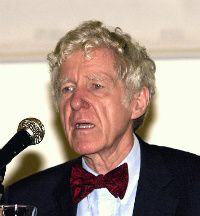Environmental Groups Are Often Quite Effective
One of the things that gives me hope for the world is that the protests of individuals and groups have the potential to be extremely effective. For example, what the Sierra Club has done with coal is amazing to me. In a period of a few short years, they’ve completely transformed the awareness of this issue for the common American; at this point virtually all of us understand the dangers to our health and to the environment that coal represents.
Earth Policy Institute’s Lester R. Brown credits the Sierra Club and other activist groups for creating the conditions under which U.S. carbon emissions have fallen precipitously over the last couple of years – largely due to our new-found distaste for coal. The campaign Beyond Coal has resulted in an environment in which virtually no new coal plants are being built, and the oldest and dirtiest are likely to be decommissioned soon.
Keep up the good work.


It’s true that some environmental groups have been beneficial in raising the awareness of the pollution from using coal and in reducing coal emissions. However, I greatly fear that many are doing us a disservice by eschewing nuclear power which I see as essential to provide adequate clean energy.
Instead of eschewing nuclear power, they should be pushing hard for the development and implementation of more economical and safer nuclear systems. Because they have failed to do so, they will be delaying our migration from fossil fuels and also be causing the expansion of a nuclear technology which is more expensive and less safe than what is possible.
While I strongly support the Sierra Club’s Beyond Coal campaign, and feel it has made a difference, they could not have been so effective without the falling price of natual gas and the Obama administration’s moves to increase the regulation of criteria pollutants such as mercury from coal plants. Both of these had the effect of reducing the relative economic attractiveness of coal plants, so the fall in carbon emission had much to do with Adam Smith’s invisible hand (partly spurred by Obama, partly by the gas drilling boom) pushing in the same direction as the activists.
It would also help if the externalities were included in the price of coal, but accomplishing that would be very difficult politically.